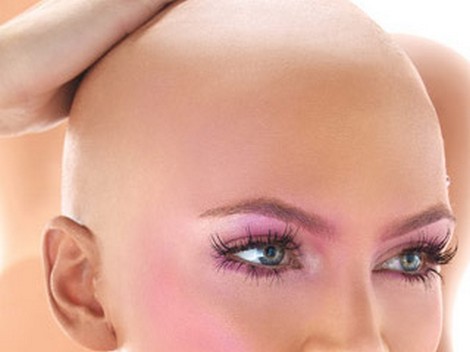How to Cope with Psychological Consequences of Hair Loss – Information for Balding Women
Thinning hair can be a huge physiological problem, especially for women. Excessive hair loss can trigger severe stress and lead to social withdrawal, depression, low self-esteem, and a host of other conditions. Since thick, luscious hair is habitually associated with female health, fertility, self-confidence, stylishness, youthfulness and beauty, thin locks or bald patches on the scalp are often perceived as ugly and shameful. Unfortunately, an increasing number of women in our society, and particularly those who get through their menopausal transition, suffer from hair loss and face related physiological trauma. For them, an ability to manage stress and cope with negative social attitudes towards balding women can become an essential survival technique.
It is estimated that, in the USA alone, more than 30 million women suffer from premature baldness severe enough to cause a serious emotional distress, anxiety and depression. In addition, many more American women regularly experience “bad hair days” and complain of excessive hair shedding and lifeless, frizzy locks.
Thinning hair can rob females of their sense of identity, security, self-esteem, and personal style, points out Dr. M. Reed, a dermatologist from the University of New York and a specialist in women’s hair loss, or so-called “female-pattern alopecia”.
A loss of scalp hair in women can be caused by a number of factors: aging, diseases, genetics, hormonal fluctuations, stress, trauma, medications, or lack of proper nutrition leading to vitamin and mineral deficiencies. However, the good news is that female-pattern baldness can be controlled and even reversed by applying a variety of treatments, including pharmaceutical drugs, herbal remedies, dietary intervention, acupuncture, hair restoration surgery, or other medical or traditional therapies.
On the other hand, Dr. Reed stresses out that most hair-friendly therapies can also be ineffective for some women, especially if their baldness is triggered by hormonal or genetic causes. For others, hair loss treatments can produce only limited results or take too long to re-grow visibly thicker hair. At the meantime, females with hair problems should learn how to effectively cope with psychological consequences of their baldness.
Dr. L. Howard, who specializes in female mental health, says that women who actively participate in the life of their community and who are more focused on their intellectual, spiritual and social achievements than “pretty looks” are less traumatized by hair loss than stay-at-home moms, homemakers, and women who lack social interactions. However, if thick, beautiful hair still plays a weighty role in your self-image and identity, you have to realize that hair loss is a medical condition that you cannot control – hence you should not feel guilty or embarrassed about it. Refocusing attention, keeping busy, getting involved in a creative work or an exciting hobby, says Dr. Howard, is a good first step to cope with psychological distress caused by baldness.
Dr. Lusskin, a psychiatrist from the University of New York, says that, psychologically, women with hair loss also respond well to proactive, self-help strategies, such as investigating available treatment options, trying different therapies, and incorporating temporary measures to reduce visibility of their condition – hair extensions, pretty headwear, wigs, etc. Often, says Dr. Reed, wigs or other “masking agents” are very helpful to reduce the severity of psychological trauma in balding women. However, other women may benefit from changing their personal style by completely shaving their heads and acting brave about their new, radical self-image.
Richard Dunn
Posted on August 28, 2008
Filed Under Hair Loss
Comments
Leave a Reply

